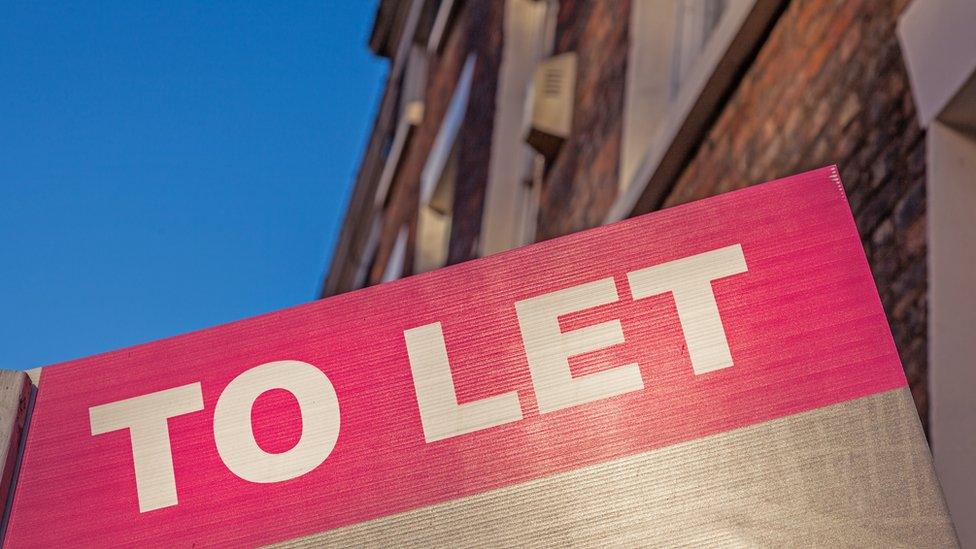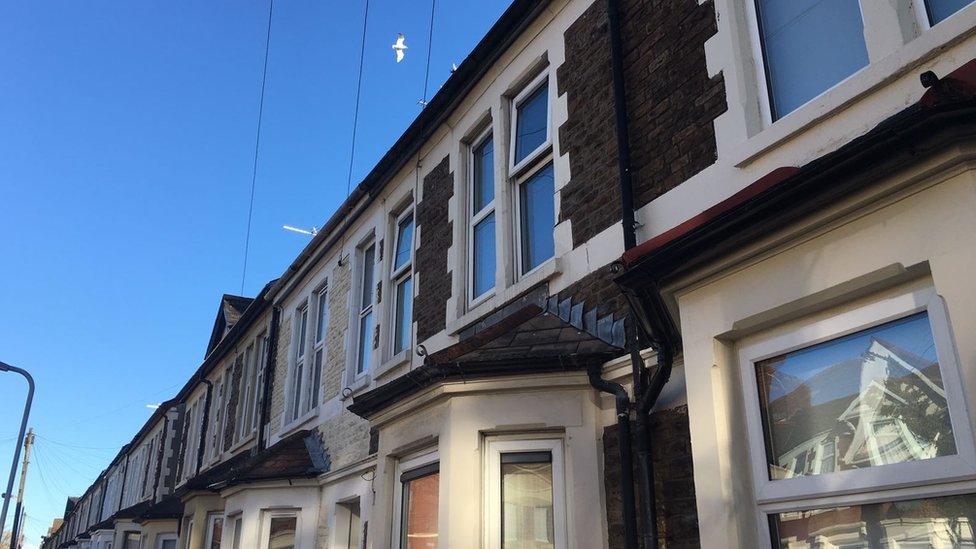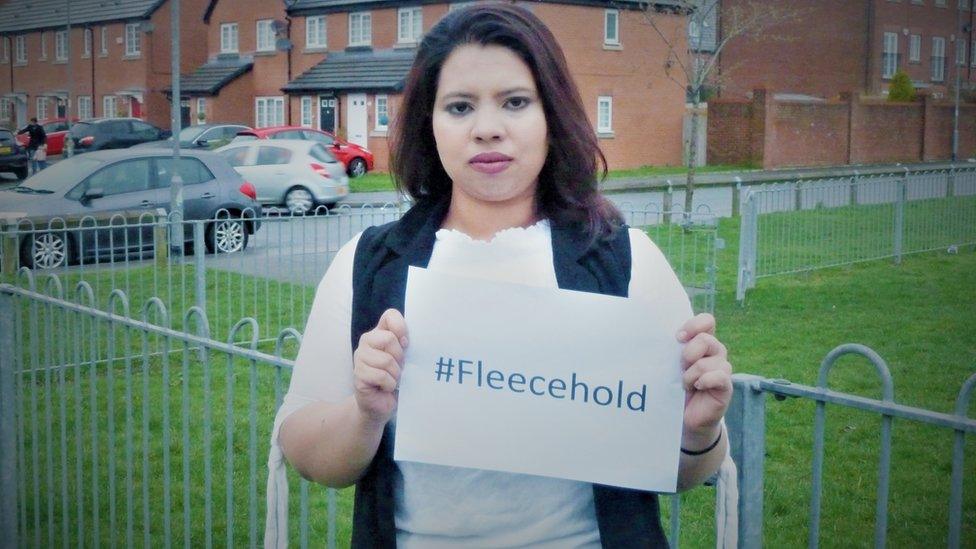Tenants paid estimated £4.1m in accidentally banned service fees
- Published

Some housing tenants have been paying fees which have turned out to be banned
Social housing tenants have paid an estimated £4.1m in unlawful service charges after the Welsh Government accidentally banned them.
Landlords collect the fees for grounds maintenance, the upkeep of blocks of flats cleaning windows and other jobs.
But a law banning lettings fees in 2019 unintentionally outlawed collecting the levies from social housing tenants with a specific type of contract.
The Welsh Government now wants to legalise the fees that were charged.
Welsh Government papers suggested stopping the fees would be fraught with difficulty - potentially disrupting tenants benefits.
Paying back the fees could also threaten the finances of some of the landlords involved, it is claimed.
But questions have also been raised by Senedd lawyers over whether the Welsh Parliament is able to legislate to rectify the problem, which BBC Wales understands only came to light last December.
South Wales Central MS Neil McEvoy said it was an "absolute mess" and called for the fees to be repaid to the tenants themselves.
Local Government Minister Julie James told the Senedd the Welsh Government did not "anticipate any adverse impact" on tenants.
Most social housing tenants have been unaffected by the mistake.
According to a Welsh Government document, external the 2019 law, which came into force on 1 September of that year, effectively barred the use of service charges for a small group of tenants who have an assured shorthold tenancy, many of whom live in supported accommodation.
Around 4,500 tenants are currently thought to have been subject to "prohibited service charges".
A total of 33 registered social landlords - such as housing associations - have received the payments. Individual organisation's liabilities range from £2,000 to more than £600,000, with an estimated total of £3.5m in payments made.
18 third sector providers of supported accommodation were also hit, having collected £686,000 in payments.
A majority of Senedd members passed an amendment on Wednesday to a separate Welsh housing bill to make the payments legal.
It was agreed despite advice from the Welsh Parliament's legal services - leaked by Neil McEvoy - which said the parliament could not make laws on the landlords concerned.
The Welsh Government believes that the changes, which will need to pass a further vote before becoming law, are within the powers of the devolved parliament.

Changes to the law were discussed by Senedd members on Wednesday afternoon
Under the terms of the changes landlords will be barred for six months from issuing a no fault eviction order on tenants who have been paying the unlawful fees.
But the legal advice suggested that did not make it impossible to evict a tenant for not paying the prohibited fees, because they could still be in breach of contract.
BBC Wales was told it is "highly unlikely" that such an eviction would take place, because courts would want the service charges removed from the arrears owed by tenants.
Among the concerns about the unintended ban is the impact on benefits.
The Welsh Government paper on the amendment says that if social housing providers stopped charging tenants could face having their benefits reassessed, which could leave tenants without benefits while their claims are looked at.
Landlords could also be unable to continue providing accommodation if they had to hand the money back - Ms James said repaying payments would have the same effect.
Neil McEvoy accused the government of "bringing huge changes to a bill, at the last minute, when they know there is little time to scrutinise those changes".
In the Senedd on Tuesday Welsh Conservative MS Laura Jones welcomed the changes but questioned how the issue arose in the first place.
'Complex issue'
A spokeswoman for Community Housing Cymru, which represents not-for-profit housing providers, said: "Service charges fund a range of support that help keep homes clean, safe and comfortable. Late last year, we became aware of an unintended consequence of legislation which affects a small proportion of tenants as a result of the type of tenancy they hold.
"This is a complex issue and our focus has been to ensure that tenants continue to receive high quality services and do not suffer any financial hardship.
"The Department for Work and Pensions has advised that benefit payments will remain in place to cover the cost of these charges and the Welsh Government has put in place proposals which, if implemented, would provide certainty and fairness for landlords and tenants on all types of tenancy agreements."
A Welsh Government spokeswoman said: "The upcoming debate on the Renting Homes Bill will give members the opportunity for appropriate scrutiny. From time to time Senedd lawyers may take a different stance, but we are confident that the Senedd has competence to pass this Bill."
Related topics
- Published15 September 2020

- Published1 September 2019

- Published20 March 2019
